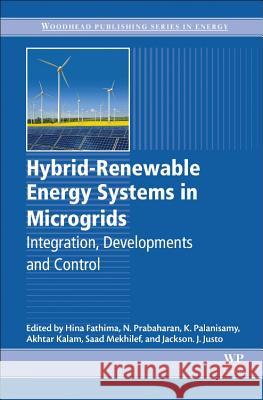Hybrid-Renewable Energy Systems in Microgrids: Integration, Developments and Control » książka
topmenu
Hybrid-Renewable Energy Systems in Microgrids: Integration, Developments and Control
ISBN-13: 9780081024935 / Angielski / Miękka / 268 str.
Kategorie:
Kategorie BISAC:
Wydawca:
Woodhead Publishing
Seria wydawnicza:
Język:
Angielski
ISBN-13:
9780081024935
Numer serii:
000436075
Ilość stron:
268
Waga:
0.36 kg
Wymiary:
22.86 x 15.24 x 1.42
Oprawa:
Miękka
Wolumenów:
01











